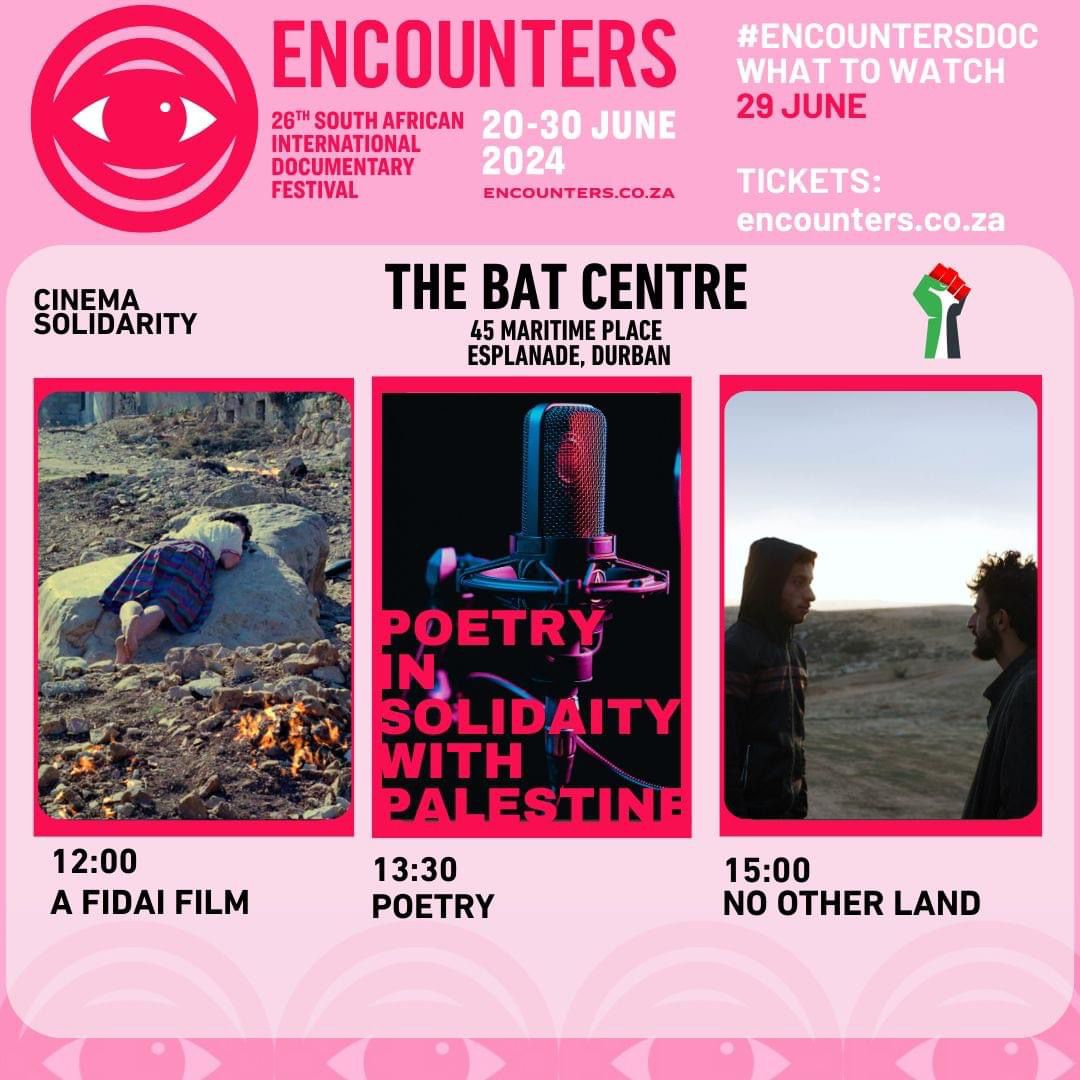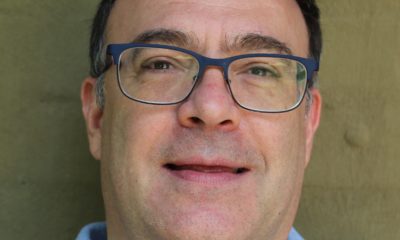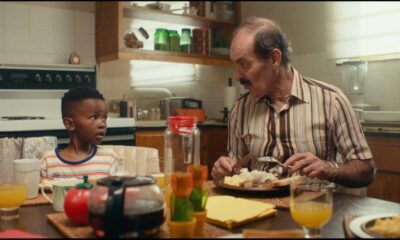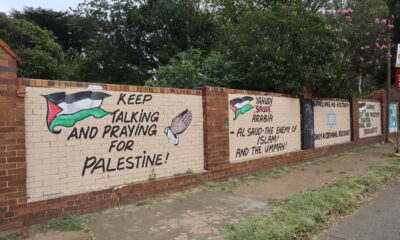
Banner

International film festival – a one-sided encounter
Published
3 days agoon
The prestigious Encounters International Documentary Film Festival (Encounters), which runs from 20 to 30 June across the country, claims to believe in the power of documentary film to contribute to mutual understanding and dialogue.
However, it failed its mission this year by presenting a one-sided “Palestine focus”, including the screening of three anti-Israel films. It also held panel discussions about Israel that didn’t include any Jews who believed in the Jewish state or Israelis. At no point in the programming were 7 October and Hamas’s atrocities even mentioned.
This was especially pertinent given the fact that new documentaries about the atrocities of 7 October have recently been released.
“We’re extremely disappointed that Encounters chose to feature only one side of the debate on Israel and Palestine,” said South African Zionist Federation spokesperson Rolene Marks. “True democracy and honest media require a range of viewpoints to be aired.
“We’re shocked that a film festival sponsored by many European governments, including Germany and the Netherlands, would be so biased against Israel and choose to have only pro-Palestinian documentaries and discussions.
“This would have been a perfect opportunity to screen Screams Before Silence, a documentary detailing the mass rape of Israeli women and girls produced by American businesswomen and tech executive Sheryl Sandberg. Another film that could have been aired was the documentary Nova, which features details of the horrific massacre of 360 young music festival attendees on 7 October,” Marks said.
“By screening films like Screams Before Silence, Encounters could have fostered discussion about gender-based violence in a country with one of the highest rates of abuse. Instead, in choosing to ignore Israeli suffering, the festival presented a one-dimensional picture of a complex conflict.”
Ari Ingel, the executive director of Creative Community for Peace, a non-profit organisation in the entertainment industry, said, “Documentaries and film festivals have an ability to build bridges between diverse communities. However, when the goal of a festival is to demonise and alienate the vast majority of Jews in South Africa because they are supporters of Israel, this tool of unity and change is easily turned into a forum for hate.
“Excluding the majority voice of the Jewish community from the festival is tokenism and racism, full stop,” he said. “The overwhelming majority of Jews in South Africa support Israel, or are Zionists, and as Dr Martin Luther King Jr famously once said, ‘When people criticize Zionists, they mean Jews. You’re talking antisemitism.’”
The festival’s organisers said, “This year, we’re highlighting the Palestinian focus to support marginalised voices and show solidarity with the Palestinian people” during the “ongoing Gaza genocide”, a libel that has been disproved multiple times. “We have selected three diverse films, including one made by Israeli and Palestinian directors working together. Our goal is to provide varied perspectives and human experiences for audiences to reflect on.”
However, the programming forced one narrative on audiences – that Israel is evil and the Israeli and Jewish experience doesn’t matter unless it’s anti-Zionist. Meanwhile, Palestinian stories that reflect “memory, archive, and belonging, memories of displacement, loss, and resilience” that “illuminate the enduring quest for stability, resolution, and belonging” were screened.
Ironically, the organisers highlighted the role of Encounters in publicising the “struggles and resilience of marginalised communities”. However, Jews who are Zionist – a tiny minority – were erased from their programming.
“We believe film festivals can foster understanding and critical thinking during times of crisis,” they said, while ensuring that no critical thinking was fostered.
The films shown included No Other Land by Basel Adra and Yuval Abraham, which documents Adra’s account of living in the Palestinian village of Masafer Yatta in the West Bank. Bye Bye Tiberias, directed by Lina Soualem, is an intimate film that chronicles the life and family history of Palestinian actress Hiam Abbass. Kamal Aljafari’s, A Fidai Film, “shows how the plundering of memory is central to the broader violence of imperialism”.
A film titled The Return, directed by Mark Kaplan and featuring Heidi Grunebaum, explores the Holocaust, but with a strong anti-Israel slant, and implies that Israel’s actions echo those of the Nazis. The pair are opposed to Zionism, and also made the anti-Israel film The Village Under The Forest in 2013.
Panellists at this year’s events included extremist Roshan Dadoo of the South African Boycott, Divestment, Sanctions coalition; Maya Schkolne, who has been an organiser for South African Jews for a Free Palestine (SAJFP) since 2018; and Jaamia Galant, an active member of the Palestine Solidarity Campaign for the past 20 years.
One event scheduled for Durban on 29 June, which includes screenings, poetry reading, and a panel discussion, was advertised with a fist in the colours of the Palestinian flag, displaying the festival’s partisanship.
The festival has been supported by the Jewish community over its 26-year history, from funding to collaborative screenings to filling audience seats. In 2021, I Am Ella, a documentary directed by Jordy Sank about Holocaust survivor Ella Blumenthal, was screened by the festival in conjunction with the Cape Town Holocaust & Genocide Centre. But instead of asking Jewish supporters how to make this year’s festival more balanced, organisers completely ignored their Jewish constituents.
“What’s disheartening about the exclusion of all Zionist films and filmmakers is that the Israeli film industry is the epitome of coexistence,” said Ingel. “Whether it be Palestinian and Jewish Israeli filmmakers coming together to tackle painful stories such as they did in the award winning mini-series Our Boys; Israel’s largest LGBTQ+ [lesbian, gay, bisexual, transgender, and queer or questioning] film festival, TLVFest, regularly featuring Palestinian films and filmmakers; or documentaries such as Dead Sea Guardians that brought together Palestinian and Jewish Israeli environmentalists.
“Ultimately, boycotts [of Zionist Israeli films] are an affront to Palestinian and Israeli moderates alike who are seeking to reach peace through compromise, exchange, and mutual recognition,” he said.
“Festivals like this one could play a small yet crucial role in helping to achieve that peace – that is, if its organisers truly believed in doing what’s best for Palestinians.”
The SA Jewish Report reached out to festival director Mandisa Zitha asking her why no films depicting Hamas’s crimes were shown at the festival. Zitha was also asked why there were no mainstream Jewish, Israeli, or Zionist representatives in programming or panel discussions; and why the Jewish community should continue to support the festival. She chose not to respond.











Gary
Jun 27, 2024 at 1:31 pm
Palestinians are ‘marginalized voices” Thats a joke, they are given a louder voice than anyone else on this planet by media, NGOs and governments
Gary
Jun 27, 2024 at 1:39 pm
How sick and evil these Jewish quislings are to compare Israel to the Nazis and to use the Holocaust as a weapon to destroy Israel and her Jewish population. We need to isolate these traitors
Gary
Jun 27, 2024 at 2:28 pm
Don’t the 1400 Israelis burned alive, raped to death , beheaded (many of them children) count in the sick twisted world of Mark Kaplan and Heidi Grunebaum?